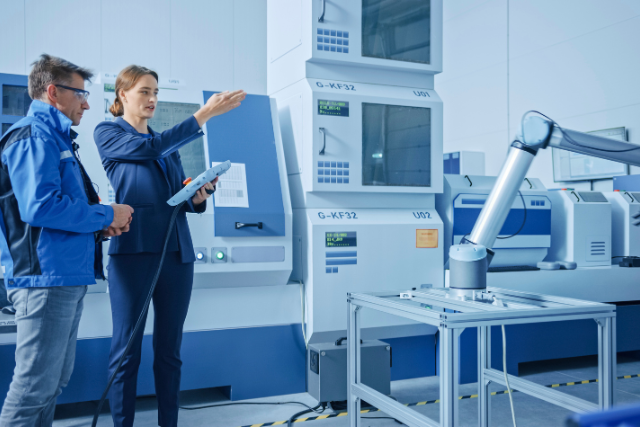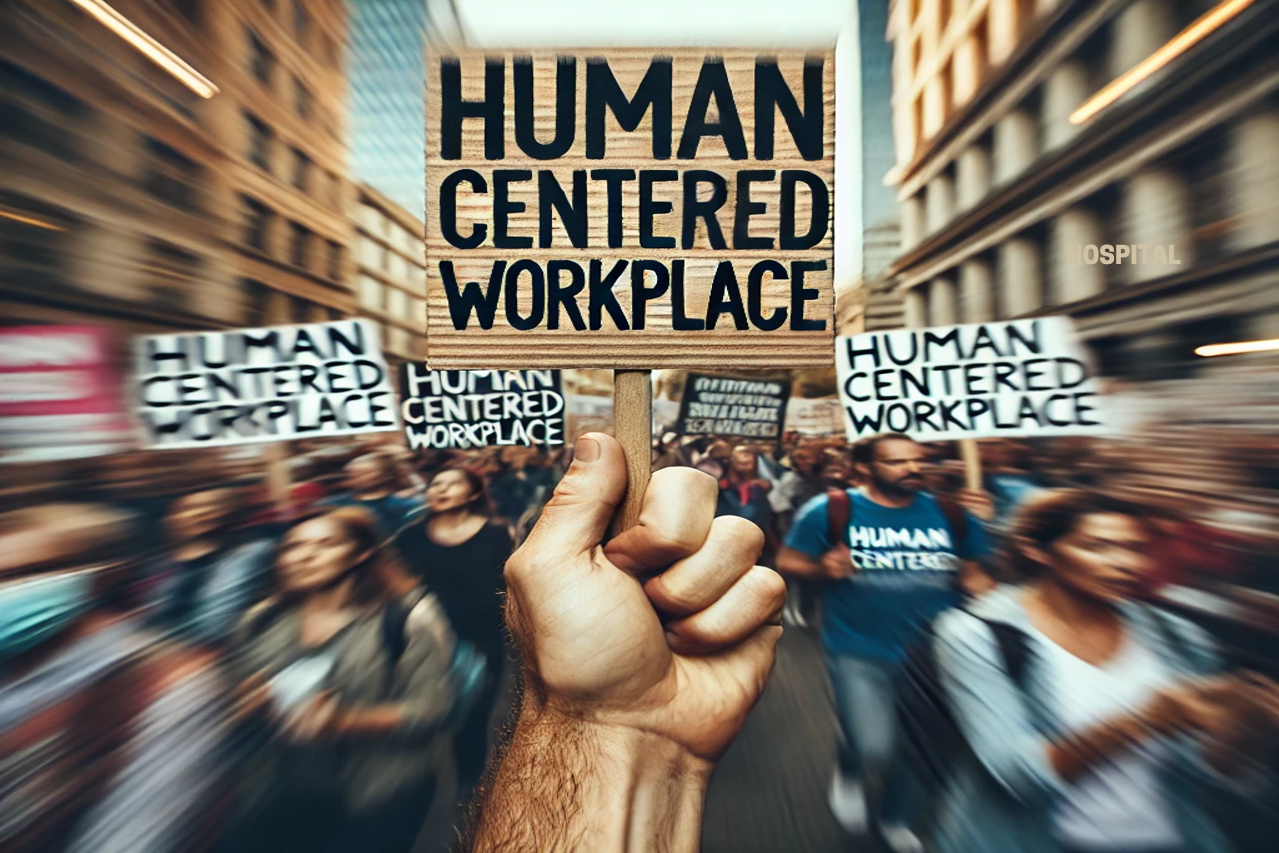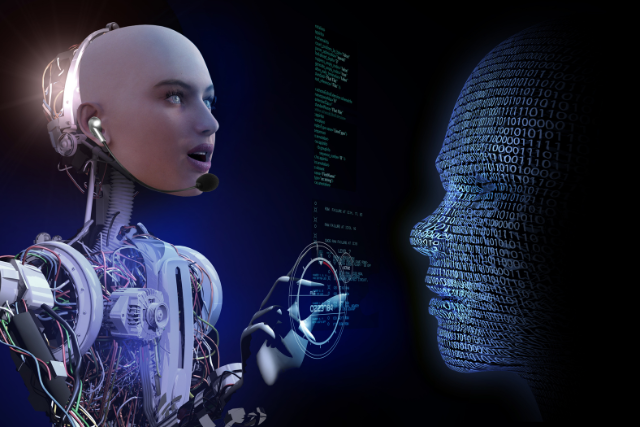As the healthcare industry continues to integrate artificial intelligence (AI) into medical devices and diagnostics, the role of Medical Equipment Technicians is undergoing a significant transformation. These technicians have traditionally been responsible for installing, maintaining, and repairing a wide range of medical equipment, from patient monitors to imaging machines. However, the increasing presence of AI-enhanced devices is adding new layers of complexity to their work.
AI integration is making medical devices smarter, more autonomous, and more reliant on software systems, leading to a need for specialized knowledge and new skills among medical equipment technicians.
How AI is Transforming the Role of Medical Equipment Technicians
AI is revolutionizing medical technology by enabling devices to analyze data, make autonomous decisions, and even predict patient outcomes in real time. This transformation is seen in devices like AI-powered diagnostic machines, robotic surgical systems, and automated patient monitors, which now rely on sophisticated AI algorithms to operate effectively.
For medical equipment technicians, this means moving beyond traditional hardware repairs and focusing on AI-enabled software systems that control these advanced medical devices.
1. Maintaining AI-Driven Systems
With AI embedded in medical devices, technicians will increasingly need to maintain both hardware and software components. Devices like AI-enhanced surgical robots and diagnostic machines require regular updates to their software and AI algorithms, along with the traditional mechanical upkeep. This will require technicians to be proficient not only in hardware repairs but also in AI software troubleshooting and updates.
2. Understanding AI Algorithms
AI systems used in healthcare often rely on machine learning algorithms to process data and provide insights. Medical equipment technicians will need to understand how these algorithms work, how they are trained, and how they are updated over time. Although they won’t need to develop AI algorithms themselves, technicians will need to know how to monitor these systems for errors, ensure they are running correctly, and implement software patches when necessary.
3. Collaborating with AI Engineers and Data Scientists
As the complexity of AI-driven devices increases, medical equipment technicians will likely work more closely with AI engineers and data scientists who develop and maintain the AI systems integrated into medical devices. Collaboration will be key when diagnosing software-related issues, fine-tuning AI algorithms, or ensuring compliance with healthcare regulations.
4. Ensuring Data Security and Compliance
AI-enabled devices handle vast amounts of patient data, which is subject to strict privacy laws such as HIPAA (Health Insurance Portability and Accountability Act). Medical equipment technicians will play a critical role in ensuring that these devices comply with data security regulations by implementing secure software updates, encryption protocols, and ensuring the safe transmission and storage of data.
Job Prospects for Medical Equipment Technicians in the AI Era
As AI continues to transform the healthcare industry, the demand for AI-literate medical equipment technicians is expected to grow. The adoption of AI-driven medical devices is expanding across hospitals, outpatient clinics, and specialized healthcare facilities, leading to an increased need for technicians who can maintain these sophisticated systems.
According to the U.S. Bureau of Labor Statistics, the job outlook for Medical Equipment Repairers is expected to grow by 7% from 2022 to 2032, faster than the average for all occupations. With AI becoming a key component of medical technology, those technicians with specialized knowledge in AI systems will be particularly well-positioned in the job market.
Key Industries for Growth:
- Hospitals and Healthcare Facilities: As AI becomes more widely used in diagnostic tools, surgical systems, and patient monitoring devices, hospitals and clinics will need technicians who can maintain this equipment.
- Medical Device Manufacturers: Companies that produce AI-driven devices, such as Medtronic, GE Healthcare, and Siemens Healthineers, are increasingly hiring technicians with expertise in AI and advanced software systems.
- Telemedicine and Remote Healthcare: With the rise of telemedicine, AI-powered diagnostic tools are being used to monitor patients remotely. Medical equipment technicians will be needed to install, maintain, and troubleshoot these devices.
Upskilling for the AI-Driven Future
To succeed in the evolving role of medical equipment technicians, professionals in this field must embrace continuous learning and upskill to meet the demands of AI-enhanced medical devices.
1. Gain Proficiency in AI and Software Systems
The most critical upskilling need for medical equipment technicians is developing proficiency in AI systems and software troubleshooting. This includes learning about the underlying technology behind AI algorithms, understanding how machine learning models work, and becoming adept at installing software updates and patches. Training in software platforms that power AI systems, such as TensorFlow and PyTorch, can provide a valuable edge.
- Actionable Steps: Enroll in courses on AI and machine learning fundamentals offered by platforms like Coursera, edX, or Udemy. These courses often provide beginner-friendly content that will help technicians understand the basics of AI, even without a deep background in computer science.
2. Pursue Certifications in AI and Healthcare Technology
There are numerous certification programs that can help medical equipment technicians demonstrate their expertise in AI-driven medical technology. Some certifications focus specifically on AI in healthcare, while others provide more general training in medical equipment technology.
- Examples of Certifications:
- Certified Biomedical Equipment Technician (CBET): Offered by the Association for the Advancement of Medical Instrumentation (AAMI), this certification is essential for medical equipment technicians and can help professionals gain credibility in the field.
- AI in Healthcare Specialization: Offered by Stanford University or other institutions, AI-focused certifications in healthcare can help technicians gain insights into how AI is transforming the industry.
- CompTIA A+ Certification: While not specific to AI, this certification provides a solid foundation in troubleshooting IT and software systems, which is valuable for maintaining AI-driven devices.
3. Develop Strong Problem-Solving and Analytical Skills
AI systems can be unpredictable, and medical equipment technicians will need strong problem-solving and analytical skills to diagnose issues with these systems. This will involve understanding complex interactions between hardware, software, and AI algorithms. Technicians should practice troubleshooting common problems with AI-driven systems and develop an analytical mindset to address new challenges.
- Actionable Steps: Engage in real-world troubleshooting exercises, whether through hands-on experience or simulations. Many training programs and certifications provide scenarios where technicians can practice diagnosing and resolving AI-related issues.
4. Stay Updated on AI Trends and Regulations
As AI continues to evolve, new devices and regulations will emerge. Medical equipment technicians must stay informed about the latest trends in AI healthcare technology and understand the regulatory landscape governing AI devices.
- Actionable Steps: Subscribe to industry publications like Healthcare IT News or MedTech Dive to stay informed about AI advancements in medical technology. Additionally, participating in industry conferences such as the American College of Clinical Engineering (ACCE) Annual Conference can provide networking opportunities and insights into the future of AI in healthcare.
What Will Be Required to Thrive in This Field as AI Continues to Grow
Medical equipment technicians who want to thrive in the AI-enhanced healthcare landscape will need to develop a combination of technical, analytical, and collaborative skills. Here’s what will be required:
1. Adaptability and Continuous Learning
The rapid pace of AI innovation means that medical equipment technicians must be adaptable and committed to lifelong learning. Technologies will continue to evolve, and technicians will need to keep their skills up-to-date through ongoing education and training.
2. Proficiency in Both Hardware and Software Systems
The integration of AI in medical devices means that technicians will need to be multi-disciplinary—equipped to handle both hardware repairs and software maintenance. Understanding how these systems work together will be critical to diagnosing and fixing issues quickly and effectively.
3. Collaboration with Healthcare and AI Specialists
Technicians will increasingly collaborate with healthcare providers, AI developers, and data scientists. Being able to communicate technical information clearly and work as part of a multidisciplinary team will be essential to the role.
4. Commitment to Ethical and Regulatory Standards
AI-driven medical devices must comply with strict ethical and regulatory standards. Medical equipment technicians will need to ensure that the devices they maintain adhere to privacy and security laws like HIPAA and GDPR and follow best practices for data security and patient safety.
As AI continues to transform the healthcare industry, the role of Medical Equipment Technicians is becoming more complex and critical. The integration of AI into medical devices adds new layers of responsibility, requiring technicians to upskill in areas like AI software, machine learning algorithms, and data security. Those who embrace these changes and invest in continuous learning will find themselves in high demand, as healthcare institutions increasingly rely on AI-literate technicians to maintain the next generation of medical technology.
Sources:
- U.S. Bureau of Labor Statistics, Medical Equipment Repairer Job Outlook, 2023.
- Association for the Advancement of Medical Instrumentation (AAMI), CBET Certification Information, 2023.
- Stanford University, AI in Healthcare Specialization, 2023.
- Healthcare IT News, AI and Medical Devices: What’s Coming Next?, 2023.




